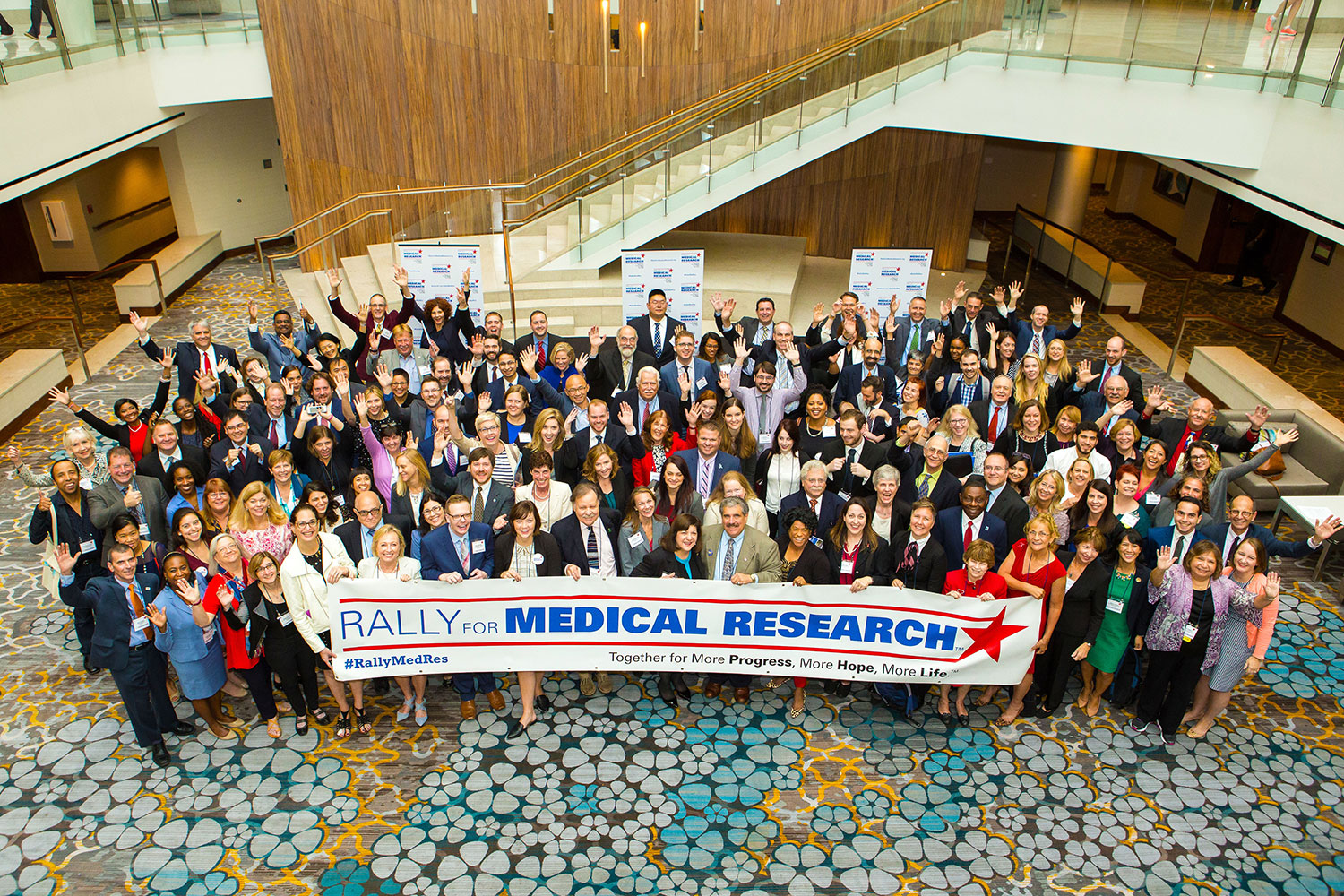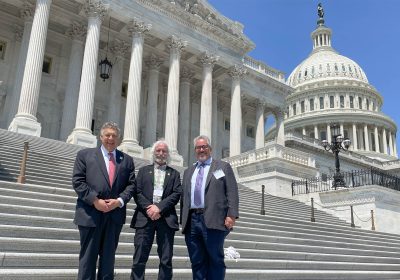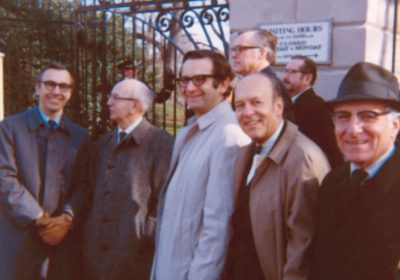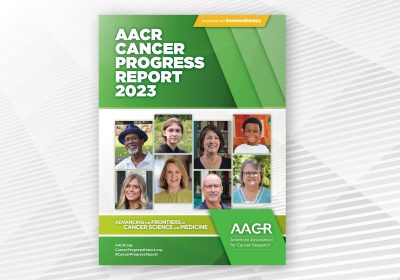
Cancer Patients Front and Center
The AACR offers advocacy opportunities for cancer patients and survivors.
Cancer patient advocacy has one main objective: making people’s voices heard. Through the efforts of the AACR’s Office of Science Policy and Government Affairs, supporters of funding for cancer research get a chance to speak out and try to influence decisions made in Washington, D.C., that directly affect cancer research and care.
The Annual Rally for Medical Research Hill Day in Washington, D.C., is a signature advocacy event organized by the AACR. During the Rally Hill Day on Sept. 14, 2017, an estimated 400 advocates representing more than 350 organizations and institutions spent hours in meetings with members of Congress and their staff discussing the critical need to sustain research funding.
“There is no substitute for an in-person meeting,” said Mary Lee Watts, the AACR’s director of government relations and advocacy. “When members of Congress and their staff sit across the table and face a parent, patient, or caregiver, the impact is tremendous and it really does make a difference.”
The AACR kicked off the rally events on Sept. 13, 2017, with the release of the AACR Cancer Progress Report 2017. The report “chronicles the progress that has been made in cancer research and makes the case for why we need continued support from Congress,” said Watts.
Another major patient initiative is the AACR Scientist↔Survivor Program (SSP), overseen by Karen Russell, administrative manager of the AACR’s Survivor and Patient Advocacy Program. SSP takes place at AACR scientific meetings and allows cancer survivors and advocates to learn from scientists, and vice versa.
Kidney cancer survivor and patient advocate Billy Foster was an SSP participant at the AACR Annual Meeting 2015 in Philadelphia. In May 2016, he traveled from Gary, Indiana, to Washington, D.C., for a lobby day on Capitol Hill. Foster, a jazz musician and DJ, uses his radio show and website to spread information about cancer. “On the radio, I’m trying to inform people in the community about what is available to them if they have cancer or how to get into a clinical trial,” he said.
Meeting legislators and their staff gave him a chance to speak to a different audience. “The legislators are the people who are actually making policy and funding these things,” he said. “You’re sitting there and you’ve benefited from the research, and you can look at them and they can look at you as you explain to them that, if not for that research, you wouldn’t be here.”
For the list of more than 300 organizations that joined together to advocate for medical research funding at the Rally for Medical Research Hill Day 2017, visit RallyForMedicalResearch.org.





